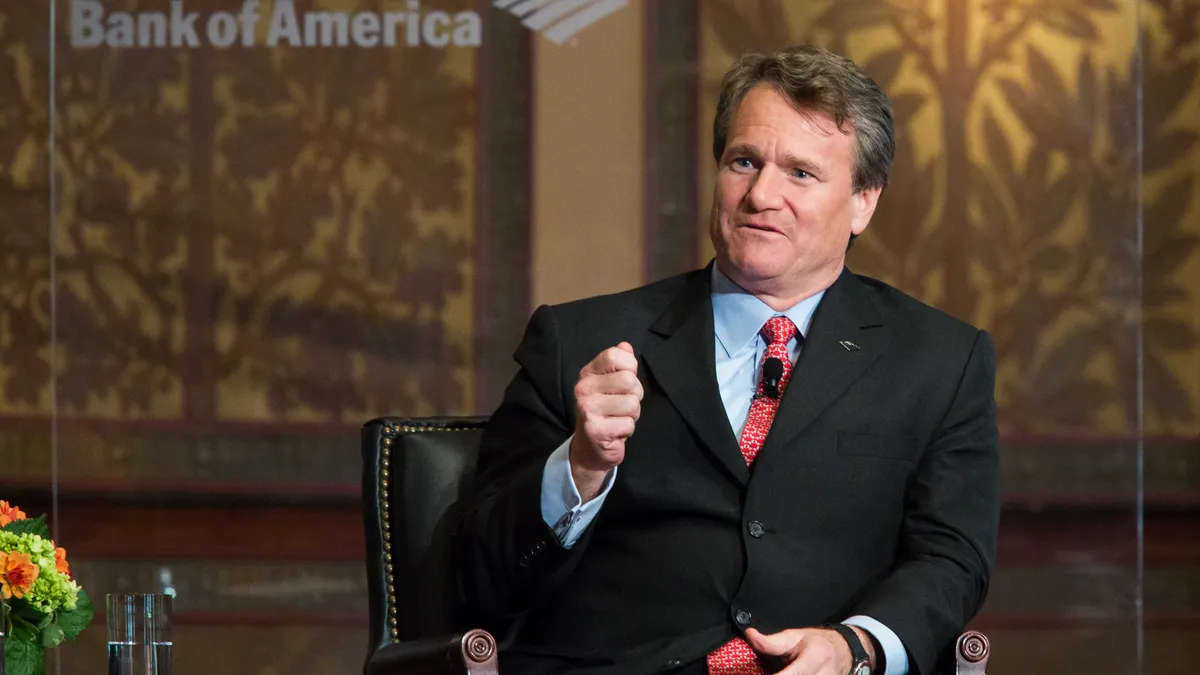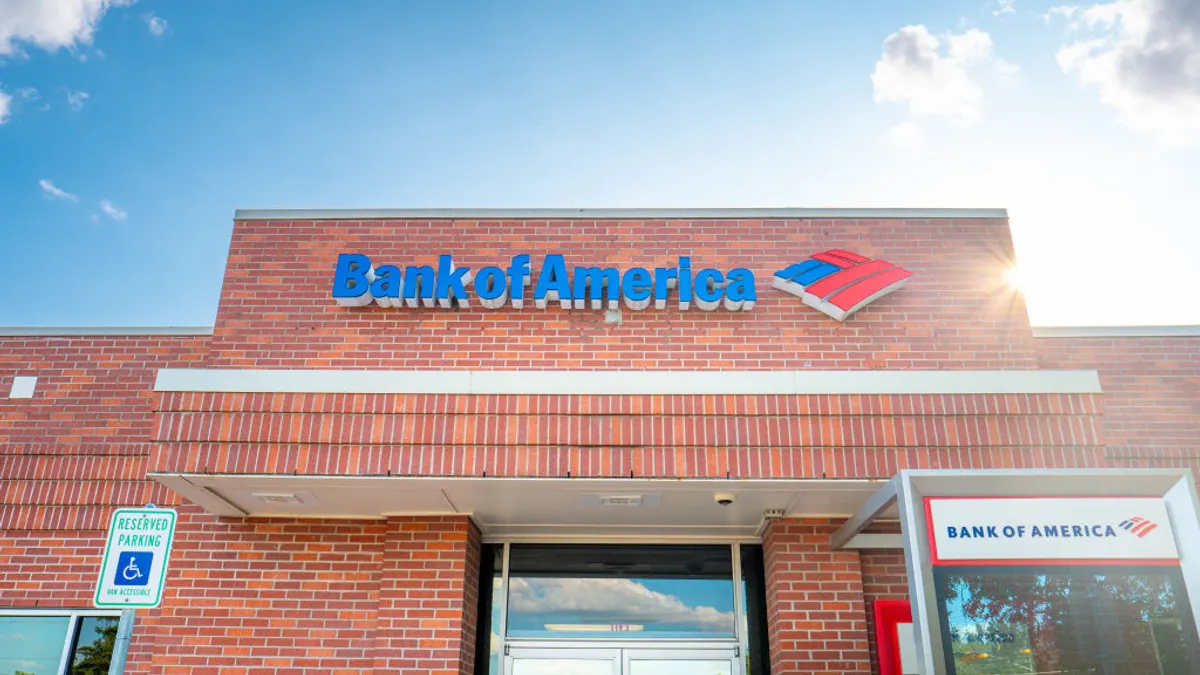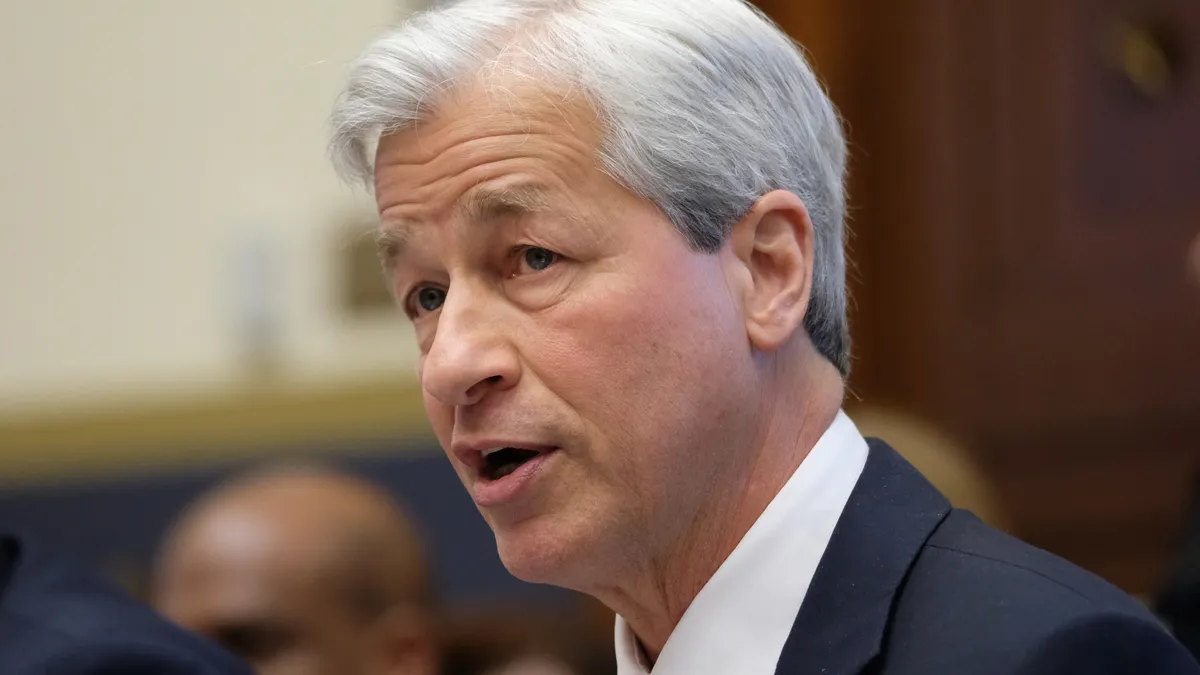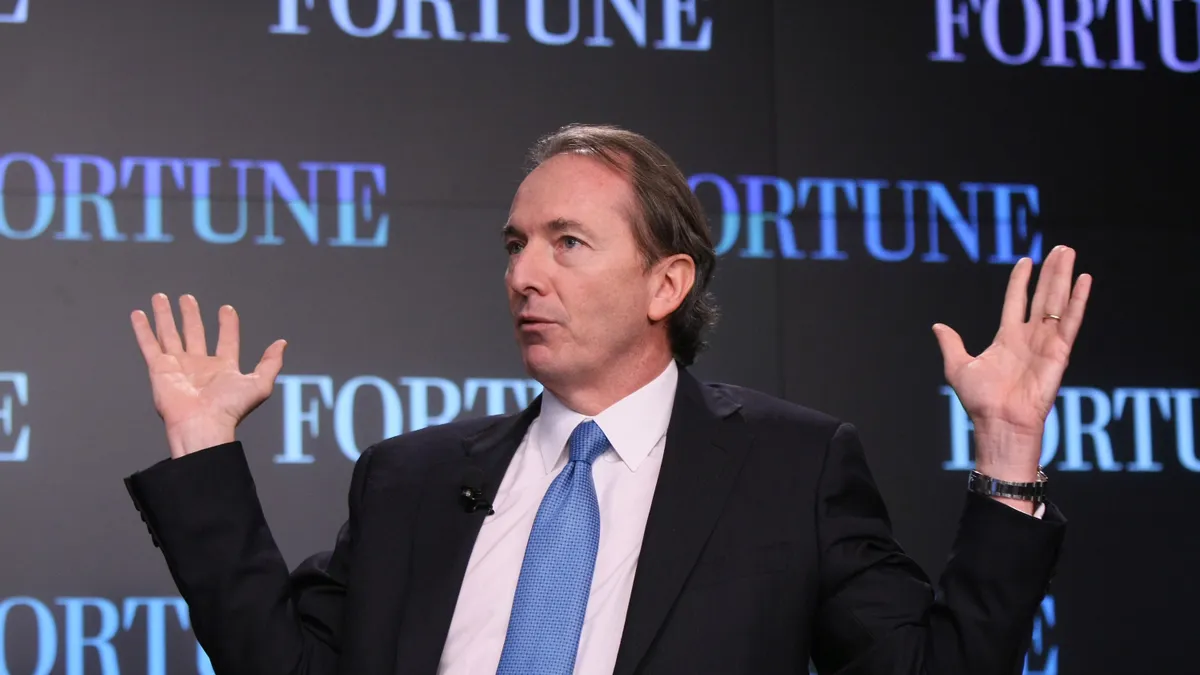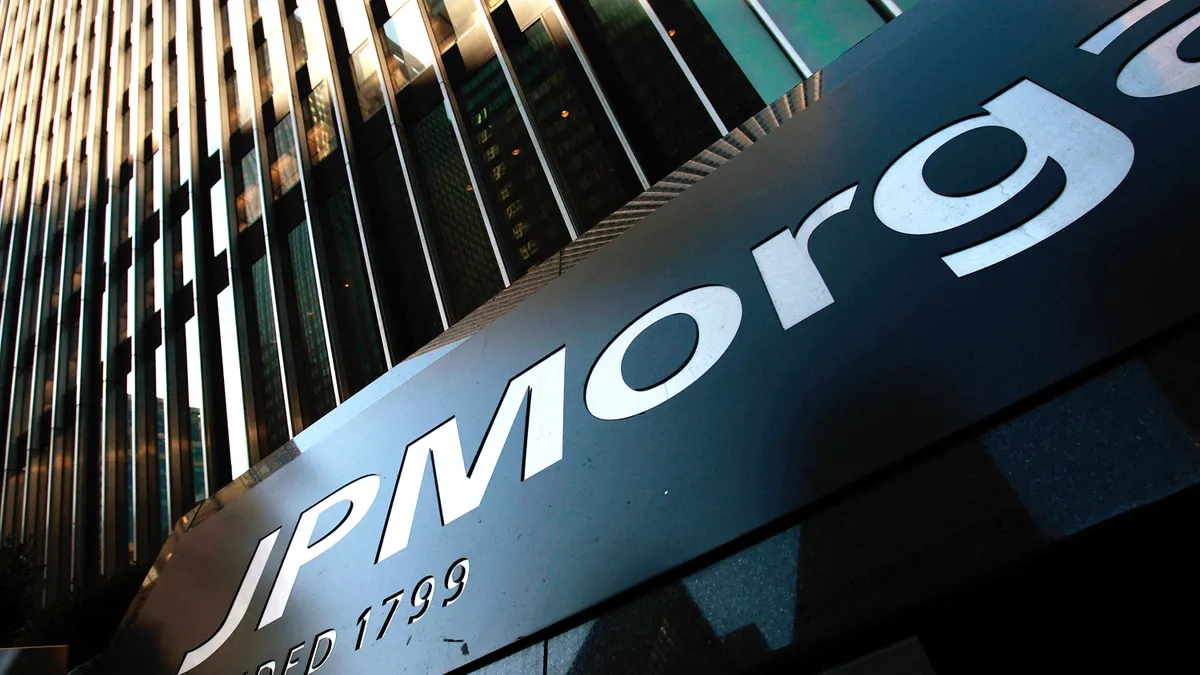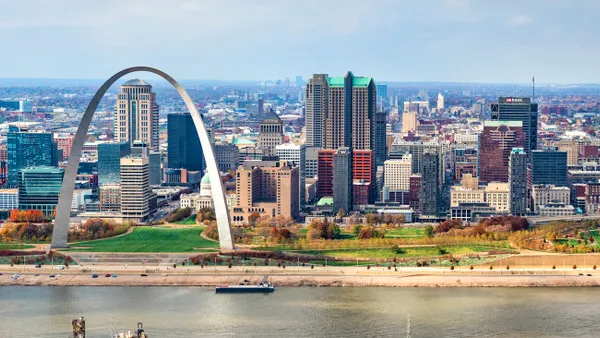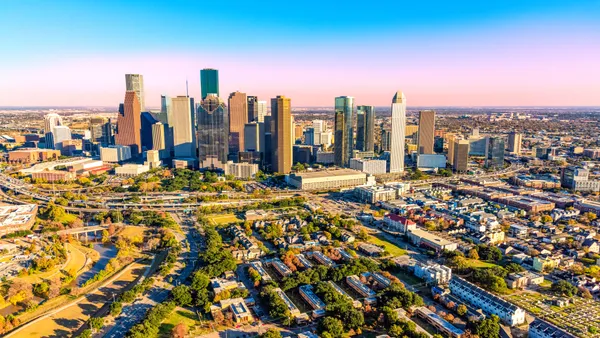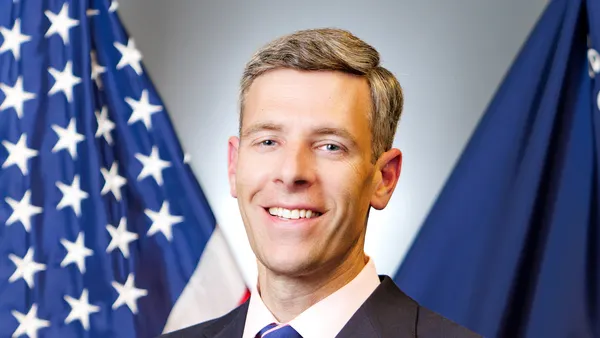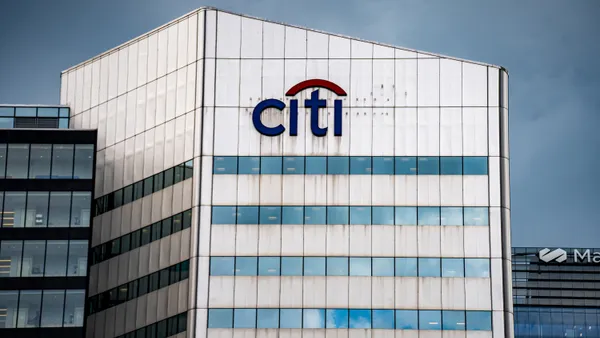UPDATE: July 26, 2021: Bank of America employees in most states will no longer have to fill out health assessments to enter their offices, starting Monday, regardless of vaccination status, according to a memo seen by Business Insider.
Daily health assessments will still be required until further notice for workers at the bank’s locations in California, Washington, Virginia, Nevada and Rhode Island because of state or local requirements, the memo indicated.
The nation’s second-largest bank cited rising vaccination rates — both within the company and across the U.S. — as reasoning to ease the policy.
Employees are forbidden until Sept. 30 from holding or attending internal or external in-person events or large meetings, unless approved by the bank’s global events team or the company's chief administrative officer, the memo said.
------
In the yearlong debate over how and when to return to the office, several big-bank CEOs’ stances have come to light — and their responses to setbacks may have even been predictable at times.
When vaccine rollout began more slowly than anticipated in February, Goldman Sachs CEO David Solomon was frank. "This is not ideal for us and it’s not a new normal," he said. Faced with the prospect that a second set of summer interns would work virtually, Solomon called the process "an aberration that we are going to correct as quickly as possible."
At the other end of the spectrum, Citi CEO Jane Fraser said in late March that most of her bank’s employees, after the COVID-19 pandemic subsides, would work a hybrid schedule to include at least three days a week from the office and as many as two days remote.
"This is not just a scheduling exercise; we will be thoughtful about when we ask colleagues to be in the office together," Fraser wrote in a memo. "The pandemic has stretched our capacity for innovative thinking, for solving problems. It has opened doors to new ways of working and shown that we are able to adapt to and even flourish amid adversity."
Other executives have been less bullish toward either end but nonetheless cautiously optimistic.
Upon laying out the expectation in late March for a September return, Wells Fargo CEO Charlie Scharf and Chief Operating Officer Scott Powell told employees: "We know you have many questions about what this means for you. We will be candid: We don’t have the answers yet. We will spend the next several weeks and months developing them, and we will share our progress along the way."
In the background, the industry heard a steady drumbeat of impatience from JPMorgan Chase CEO Jamie Dimon. He told wealth-management clients in an April webinar that corporate America may be "overdoing it a bit" in its reluctance to return.
"A lot of people say, 'I'm not going to go back to work.' Look at their Instagrams," Dimon said. "They didn't get sick from coming into the office. They got sick partying."
He followed that up weeks later, asserting that working exclusively from home "doesn't work for those who want to hustle. It doesn't work for spontaneous idea generation. It doesn't work for culture."
“It’s got to work for the clients. It’s not about whether it works for me, and I have to compete," Dimon said. "Yes, people don't like commuting, but so what?
"We want people back at work, and my view is, some time in September, October, it will look just like it did before, and everyone's going to be happy with it."
In the time since those comments, 43.7% of the country has become fully vaccinated, JPMorgan and Goldman Sachs have both asked employees to come back to work, and Goldman and Wells Fargo have asked staff to report their vaccination status.
And the CEOs of the U.S.’s other two largest banks — Bank of America and Morgan Stanley — have broken their relative silence on office returns.
"If you can go into a restaurant in New York City, you can come into the office and we want you in the office," Morgan Stanley’s James Gorman said Monday at a financial services conference organized by the bank.
He said the bank had not yet started "dictating" when staff should return. Rather, he said, he sent a "directionally very strong" message.
“[By] Labor Day, I’ll be very disappointed if people haven’t found their way into the office and then we’ll have a different kind of conversation,” he said.
Wells Fargo, incidentally, is also using Sept. 6 as its benchmark for office returns. As is Bank of America.
"The idea is the vaccinated teammates should be back to work after Labor Day," Bank of America CEO Brian Moynihan told CNBC. "The basic concept is from now to Labor Day or mid-September, you’re kind of in that transition mode."
The bank began asking staff their vaccination status months ago, Moynihan said.
"About 60,000 people in the U.S. ... have told us that status," he said. "Now we’re in the process of inviting those people back to work. We give them 30 days-plus notice."
Moynihan said, in his experience, people want to get back to the office. "I was at this wedding over the weekend and a bunch of young kids working in our industry for a competitor [are] all ... tired of working out of their rooms," he told CNBC.
At his conference, Gorman stressed the importance of the office environment.
"[It’s] where we teach, where our interns learn. That’s how we develop people. Where you build all the soft cues that go with having a successful career that aren’t just about Zoom presentations," he said, later calling out employees who, after the pandemic, want to work remotely out of state.
"If you want to get paid New York rates, you work in New York," he said.
Moynihan, too, at Bank of America's annual meeting in April, made his pitch for the office.
“We are a work-from-office company,” he said, according to American Banker. “We have always had a work-from-home program, but it requires great discipline to execute on that appropriately.”
This week, he noted that asking unvaccinated employees to return to the office remains a potentially thorny issue, adding that’s why the focus is first on vaccinated staff.
"The key is not to lose track of the virus vaccine path and the virus infection path," Moynihan said. "The No. 1 risk to our economy still is that question."
Disclosing vaccination status is voluntary at Morgan Stanley, Gorman emphasized, adding that more than 90% of employees working from the bank’s offices are vaccinated. Gorman said he expects that figure to jump to 98%.



